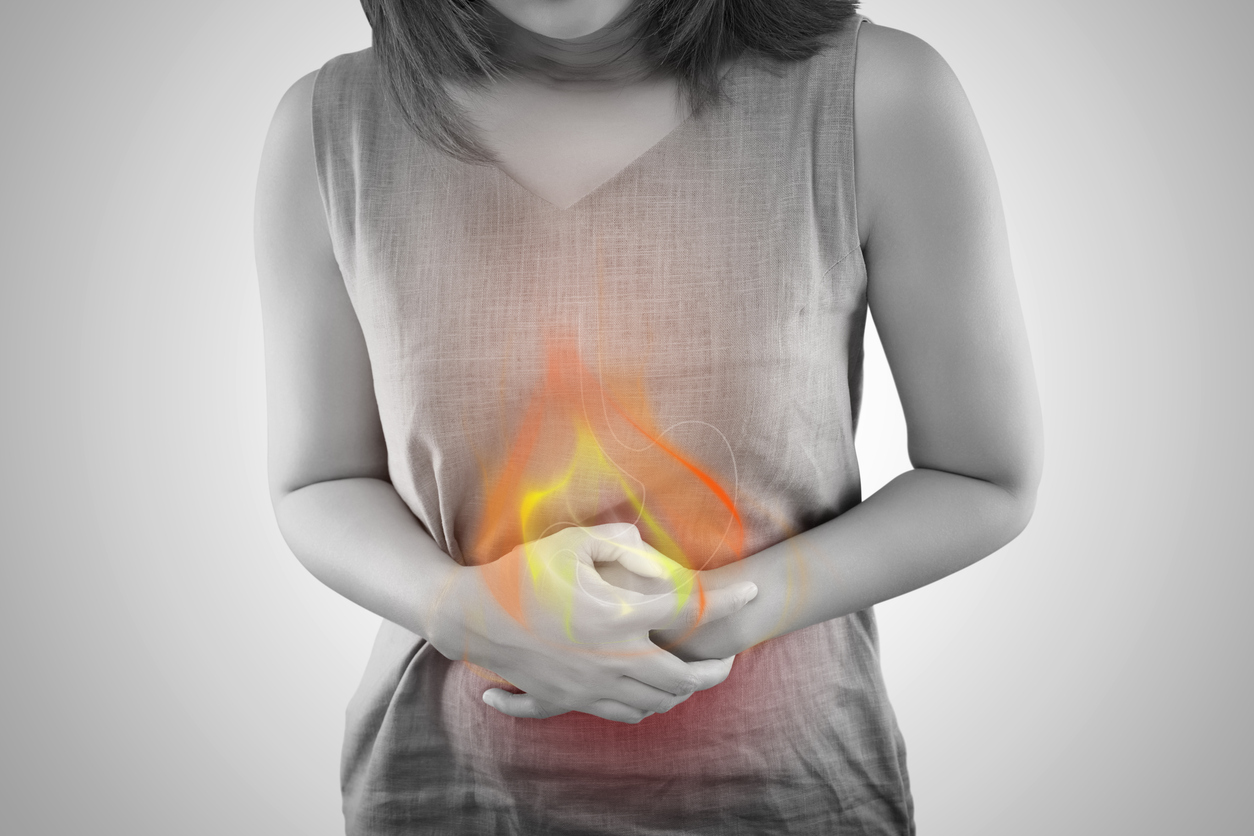Polycystic Ovarian Syndrome or PCOS as it’s commonly known as is a condition that is caused due to hormonal imbalances in the woman’s body. Increased production of androgens (male hormones) in the female body results in the formation of small sacs or cysts in the ovaries. This could result in signs and symptoms like – irregular periods, diabetes, weight gain, excessive hair growth, skin discolouration, acne and infertility. In many cases, PCOS also leads to poor mental health conditions, with women suffering from anxiety, depression, body image issues and mood swings.
Let’s talk about how mood swings are related to PCOS:
PCOS mood swings symptoms are like having PMS mood swings, but a lot worse! While mood swings don’t affect all women with PCOS, it’s best to be prepared when you’re at risk. Studies have shown that younger women may undergo more severe mood swings as compared to their older counterparts.
But, why do mood swings have anything to do with PCOS?
While there’s no research that pinpoints the cause of this relation, there are a few areas of concern that this relation can be attributed to:
- Insulin resistance – causes elevated blood sugar levels. This results in the body’s method of producing hormones that can lead to prolonged periods of stress.
- Hormones – specifically increased levels of androgens too can result in long stressed phases.
- Stress – having a chronic condition can of course be a valid reason to be stressed and as we know, stress for long durations of time will lead to anxiety or depression.
- Inflammation – during PCOS, multiple spots in the woman’s body undergo inflammation. This internal stress in the body causes an increase in cortisol levels that leads to more stress – a vicious cycle
How are mood swings different from depression?
Depression or an intense feeling of hopelessness, sadness or worthlessness (for no evident reason) is a known and a rather common symptom that’s associated with PCOS. When depression goes untreated or undiagnosed, it can lead to frequent fluctuations in mood. A woman will often experience a spectrum of emotions from joy or irritability to extreme anger or sadness. At this point, it is important to note that these extreme emotions may or may not have a triggering situation.
How to manage PCOS mood swings?
Managing the symptoms of PCOS – whether physiological or psychological varies from woman to woman based on the severity of the condition. That being said, other than medical intervention, there are just 2 effective and safe management techniques. Broadly, we can classify them as lifestyle changes which include exercise, nutrition and stress management and social support from family, friends, caregivers and wellwishers. Let’s discuss these further in detail.
Lifestyle changes
Making small yet effective changes to everyday activities can add up and eventually make a huge difference in the way PCOS affects the body and mind. Even a minimal 5-10% of weight loss has a positive impact on metabolic, reproductive and psychological symptoms of PCOS.
Physical activity and exercise
Following a consistent workout routine helps the body to bring certain hormonal levels to a state of balance. It also improves the body’s resistance to insulin, improving blood sugar levels. Exercise not only keeps your body healthy, but the happy hormones released during exercise also impact the mind. Spend equal amounts of time participating in endurance training like HIIT, jogging and swimming as well as resistance training activities like bodyweight training and weight lifting. If you like, you can also play a sport and dedicate at least one day a week to practising yoga and pilates.
Nutrition and diet
It’s important to remember that eliminating entire food groups will not do you any good. It’s best to find smart alternatives to substitute the not-so-healthy or caloric heavy foods. Stay away from foods that trigger inflammation or certain reactions in your body. Eat at regular intervals while consuming whole foods that meet your macronutrient requirements. In severe cases, it’s best to consult a nutritionist.
And the rest
Make sure you’re staying well hydrated. Drink at least 2-3 litres of water every day. If that’s too tough, meet your water requirements by eating water-rich fruits and vegetables and by drinking juices and soups.
Rest and recovery are just as important as exercise. Get 7-9 hours of undisturbed sleep every night. It’s during these hours that the body and mind relax and rejuvenate.
Lastly, manage stress levels. Figure out methods that help you stay calm in stressful situations. Meditating frequently and practising breathing exercises are known to help keep calm in chaotic situations.
Social support:
Having a close set of people women with PCOS feel safe with is extremely important. PCOS comes with its own set of mentally distressing conditions and one of the best ways to maintain a healthy relationship with your body and mind is by having healthy relations around you.
It’s a good idea to confide in a family member or friend, someone you can talk to about how you’re feeling.
For medical assistance, consult a judgement-free gynaecologist or a PCOS health expert. Their guidance and treatment plan will enable you to take one day at a time without feeling too overwhelmed.
If you feel you’re in a situation where you cannot handle your emotions, they’re taking the better of you and going through a routine day is difficult, don’t hesitate to begin therapy with a qualified psychologist. They will help you regard and justify your emotions while giving you the right tools to deal with your emotions.
Remember, you’re not alone. Your emotions are justified and addressing the psychological impact of PCOS is just as important as treating the physiological aspect. Under the right guidance and treatment plan, all the symptoms can be managed.


















